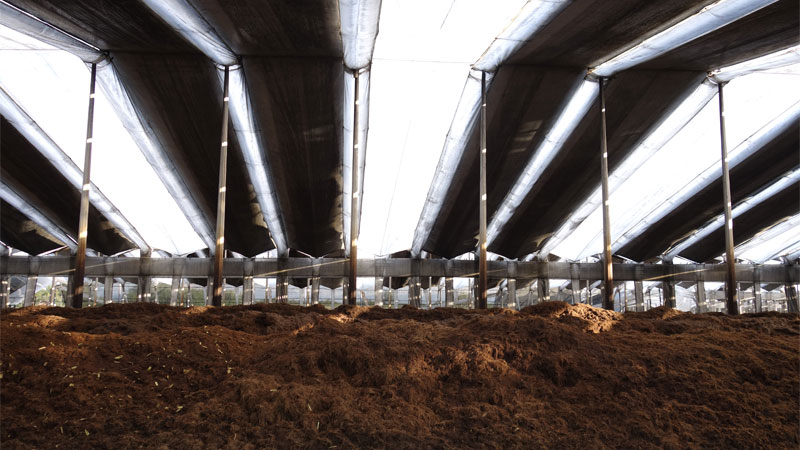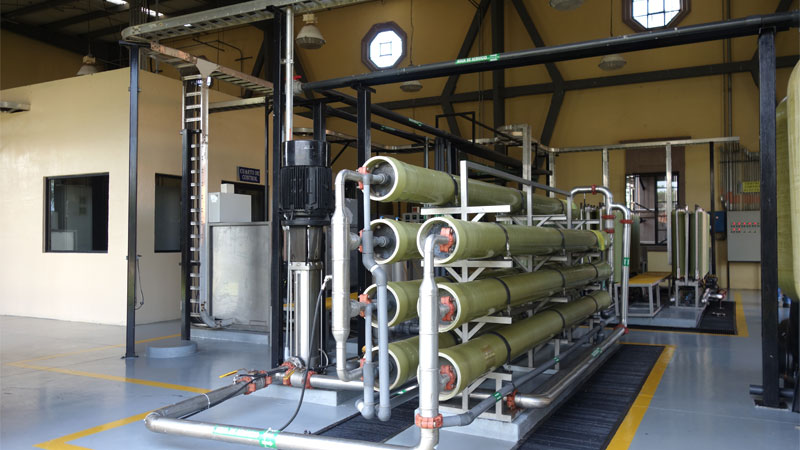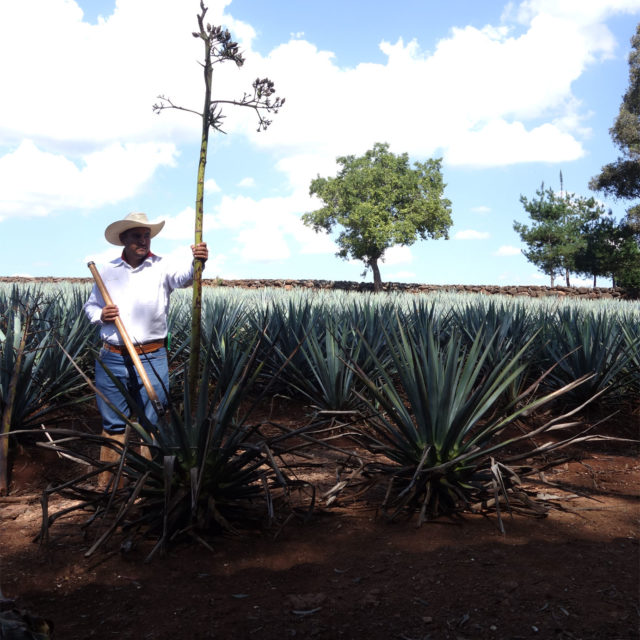“Agave is not in danger,” says Antonio Rodriguez, director of production at Patrón. Despite the 2018 news reports that an agave shortage was threatening tequila and mezcal production, and Mexican ecosystems, Rodriguez believes the crop is not in crisis.
The abundant agave harvest did drive prices down, Rodriguez says, but “from now into the future, there’s enough agave for the forecast of production.” Still, many others believe these fluctuations demonstrate a larger problem: As agave prices oscillate, farmers may be forced to cut corners with less sustainable practices, such as using agrochemicals and harvesting agave plants years early. This may not affect our Margaritas in the short term, but could be detrimental for future generations of farmers, residents, distillers, and drinkers.
What tequila producers choose to do now, in other words, will determine the spirit’s future. And we, the tequila-purchasing public, have to take our role more seriously to ensure its survival.
“Tequila can be an extremely sustainable industry when distillers take the time and care needed to give back to the Earth,” Jose “Pepe” Hermosillo, founder of Casa Noble Tequila, tells VinePair.

Tequila exists in a delicate ecosystem of agave farmers, called jimadores, distillers, and consumers. Although agave shortages make headlines in the U.S., it’s hardly novel to the producers in Mexico who grow and purchase it. “Agave production is cyclical, which is why there tend to be rumors of an agave shortage every 10 to 15 years,” Hermosillo says.
It takes about seven years for agave to reach the age ideal for tequila production, and about 12 years to grow to full maturity, when the plant flowers and is pollinated by bats and other creatures of flight. But pressure to sell can lead jimadores to harvest their crops as young as three years.
The young plants are sold to “diffuser producers,” or industrial-scale operations that use the premature juice to make lower-quality, cheaper mixto tequila during booms. A 2017 figure from the Tequila Interchange Project estimates 98 percent of Mexican agave growers have adopted these methods to stay afloat.
“This has devastating ecological consequences. Maturing agave is an essential segment of Mexico’s ecosystem,” David G. Suro, owner of Siembra Azul and Siembra Valles tequilas, and president and co-founder of the Tequila Interchange Project, tells VinePair. “The push for young agave has also led to more cloning and much less reproduction via pollinators, which is part of the ecological consequence.”
Suro believes the industry needs to create incentives to improve planting and harvesting practices.
Rodriguez agrees, and notes that Patrón, established in 1989, has operated a sustainable business “since day one.” Hacienda Patrón, the distillery’s estate, composts scrap agave and other organic matter, grows its own vegetables for the company cafeteria, and has a custom water treatment facility.
Waste management is important to Casa Noble as well. It grows 100 percent of its agave on site, “allowing any plant waste created during production to be used as compost to fertilize the fields and help more agave plants flourish,” Hermosillo says. Tequila is “made in small quantities, batch by batch. This means that our production is a bit slower, so we are able to manage and reuse any waste as we go.” It also has a custom water treatment facility on site.
Tequila Cazadores, founded in 1973, “is zero waste and fully sustainable. The distillery is 100 percent biomass fueled from agave fibers … and carbon-neutral,” a spokesperson writes VinePair in an email. It uses “renewable fuel sources such as clean waste wood, biomass briquettes, sawdust, coconut shell, and tree cuttings.”
Rodriguez believes sustainability is “not only waste treatment, but what you do for the people.” Patrón is the town’s biggest employer, and staff benefits include food, transportation, and education opportunities to advance their careers. “One of our philosophies is always look for talent inside,” Rodriguez says. “There are a lot of stories here … [where] someone starts chopping agave [in the distillery], and now they are operating the pot stills.”
Patrón also offers part-time and flexible schedules to employees who are parents or finishing school, and staff members volunteer with community organizations, including orphanages, a retirement home, and a food bank.

The best way to support the communities and ecosystems engaged in agave agriculture is to make informed purchasing decisions. Consumers can vote with their wallets by researching tequila companies whose practices align with their own beliefs. “If consumers protect themselves by demanding more information, we’ll all be better off,” Suro says.
“Go behind the bottle,” Rodriguez adds. “If you can’t find out what’s behind it, maybe it’s not the right choice.”
How to Choose Better Tequila
Here are some ways to make sure the tequila you buy is quality and sustainably produced.
It’s 100 percent agave. Tequila is produced in Jalisco, Mexico, with 100 percent Blue Weber agave plants. If this is not on the label, the liquor is a mixto, which uses fillers and less environmentally friendly ingredients.
It’s bat-friendly. The Tequila Interchange Project and Institute of Ecology of the National Autonomous University of Mexico created the Bat-Friendly Project to encourage producers to let a portion of plants flower. Bottles with a Bat-Friendly label signify 5 percent of agave is fully matured to encourage pollination. Bars and restaurants that have worked with the Bat Friendly Project include Clavel in Baltimore; Faith and Flower and The Ponte in Los Angeles; and Colonie and Gran Electrica in Brooklyn.
It’s tequila-nerd-approved. Beware of cheap tequila (any bottle below the mid-$20s), and be willing to pay for a better product. Along with the Bat Friendly program, resources like the Tequila Matchmaker, a website and app, can help you find brands that are responsibly produced.
